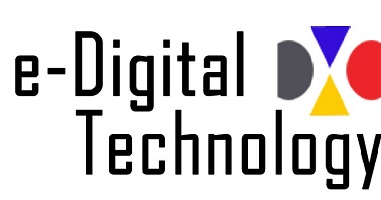
Digital health solutions (DTx) are at the fore of preventive health care transformation. These science-based digital interventions we see put out to prevent, manage or treat medical conditions that present in high-quality digital formats. Unlike fitness applications or general wellness devices what we see with digital therapeutics is that they go through clinical evaluation and also are put forth or recommended by health care providers. Also in this early stage of large-scale adoption, we are seeing a move from a reactive to a proactive health care model, which is more about long-term well-being as opposed to short-term remedies.
Closing the Distance in Tech and Health Care.
Digital health solutions which is at the crossroads of medicine, technology, and behavioral science. We see in them a platform mobile apps, wearables, remote monitoring tools that put forward structured interventions which in turn change the patient’s behavior, improve health results, and reduce the need for expensive medical procedures. Also we see great success of these tools in the management of chronic diseases like diabetes, hypertension, obesity and mental health conditions.
For instance, a patient who is at risk for type 2 diabetes may use a Digital Health solution that will present tailored coaching, track diet and activity, and keep them engaged in health-improving behaviors via interactive prompts. By early intervention, these solutions also help in the prevention of disease progression and reduce the use of medications.
Personalized and Scalable Preventive Care
Digital therapeutics stand out in preventive health for their personalization at scale. In preventive care which is very resource-intensive and logistically intensive, Traditional health measures fall short. But DTx solutions get over this by using data-driven algorithms which they use to tailor to each user’s needs.
In matters of health behavior change, whether it’s to stop smoking, manage stress, or improve healthy sleep habits digital therapeutics provide real-time feedback and adaptive interventions. What we see is that this degree of personalization increases patient engagement, which in turn is key to bringing about sustainable behavioral change.
Supporting Health Systems and Reducing Costs
Healthcare systems worldwide report high levels of stress which in large part is a result of growth in health care costs and the rise of chronic diseases. In to that we see digital therapeutics which put forward a very affordable solution for intervention. By which we mean that they are keeping patients health which in turn reduces the need for emergency care or hospitalization thus at the same time we see a large-scale reduction in long-term health care spending.
Also, these tools integrate into EHRs and remote patient monitoring systems easily, which in turn gives clinicians an in-depth picture of patient behavior in between visits. This, in turn, allows for timely interventions and better care coordination.
Regulatory Validation and Growing Trust
To a large degree of the digital therapeutics growth we see an increasing regulatory acceptance by the FDA and EMA, which is a major milestone. Also we report that a number of Digital Therapeutics products have obtained approval or breakthrough designation, which in turn adds to the credibility of this new care model.
This regulatory nod, along with positive results from our clinical trials, is winning over physicians and insurers, which in turn is building for us a base of trust with patients. We are seeing payers include DTx in reimbursement, which is in turn we are seeing as very supportive of wide-scale adoption.


